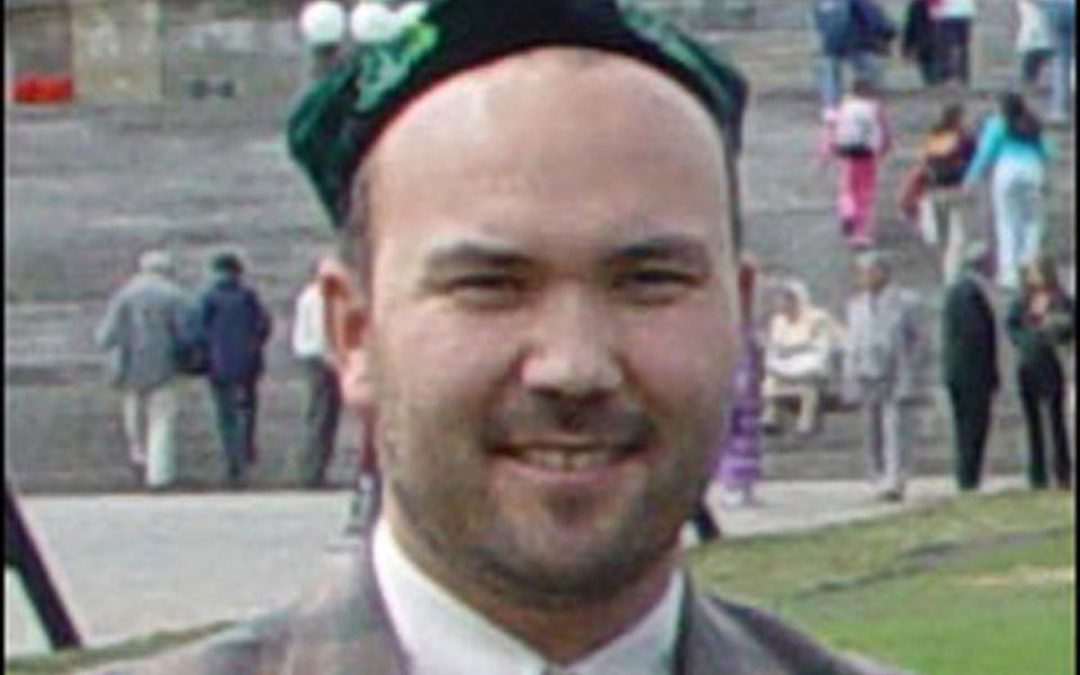Despite a new emphasis on boosting trade with China, two federal cabinet ministers are pledging to keep fighting for the cause of Huseyin Celil, a Canadian behind bars in an unknown Chinese prison.
International Trade Minister David Emerson raised the Celil case at a meeting yesterday with Chinese Foreign Minister Li Zhaoxing. And it will be raised again this week by Finance Minister Jim Flaherty, who arrived in Beijing yesterday.
Mr. Flaherty, speaking to reporters, said the federal government has a “duty to be frank” about its concerns over the treatment of Canadian citizens.
Yet the two ministers were relatively muted and circumspect in their public comments on the Celil case. Asked repeatedly about it, both men declined to give anything more than a brief comment.
“We raised that case, and I’ll raise it again,” Mr. Flaherty said tersely.
Mr. Emerson’s press secretary, Jennifer Chiu, refused to comment on whether Mr. Emerson had made any progress on the case in his meeting with the Chinese Foreign Minister. Nor would she say whether Mr. Emerson had managed to persuade the minister to disclose Mr. Celil’s whereabouts.
“Officials at the Canadian embassy will continue to follow up,” she said in her only comment.
Mr. Celil was arrested last year during a trip to Uzbekistan and extradited to China on allegations he was involved in terrorist activities.
China has refused to accept that he is a Canadian citizen, even though he had emigrated to Canada and received a passport. China has also refused to allow Canadian diplomats to have any access to him, even though Canada is entitled to such access to citizens under international treaties.
Mr. Celil, who was born and raised in the Muslim region of Western China, is a member of the Uighur minority. Human-rights groups have criticized China for suppressing the rights of the Uighurs.
The Celil case will be a major test of the federal government’s new China strategy, based on the premise that it can push for human rights in China while simultaneously lobbying for closer economic relations.
“We don’t separate the two,” Mr. Flaherty said last night. “It’s a comprehensive relationship — I would never single out one aspect of the relationship over another. . . . We believe in protecting the rights of Canadians around the world. At the same time, we believe in growing the economy of Canada.”
Countries such as China and Canada will sometimes have concerns about the treatment of their citizens abroad, he said. “It’s our duty to be frank about them. At the same time, we have important trading relationships, we have important large relationships that are important for our economies, for the future of our peoples, and we need to emphasize those as well.”
It’s unclear whether Beijing will accept Ottawa’s efforts to push hard on the Celil case and on human-rights issues in general. At a briefing this week, Chinese Foreign Ministry spokesman Liu Jianchao said there must be “mutual trust” and “mutual respect” between Canada and China. He repeated China’s long-standing criticism of Canada’s decision to grant honorary citizenship to the Dalai Lama, the Tibetan spiritual leader who is regarded by Beijing as a rogue separatist.
“The development of China-Canada relationship on the basis of equality and mutual respect serves the interest of both sides, instead of benefiting only one side,” Mr. Liu told reporters.
“The Dalai Lama question is not a matter of religion or human rights. It is a major question bearing on the sovereignty, territorial integrity, and national unity of China. . . . We wish Canada can exert sincerity to promote the healthy and stable development of China-Canada relationship by enhancing not only economic co-operation and trade but also political mutual trust.”
Written by Geoffrey York
Original Link: theglobeandmail.com/sports/ministers-pledge-to-continue-fight-on-celil-prison-case/article17989341/


Recent Comments